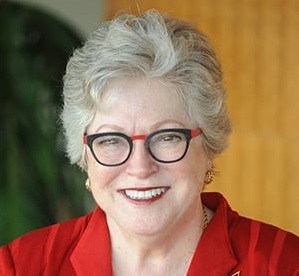 Each of us is the result of numerous interactions with those who flow through our lives. We, like the Triune God, are constituted by relationships of self-giving, attentiveness and receptivity. Parents, siblings, grandparents, spouses, children, teachers at school and church, pastors, neighborhood friends, classmates over the years, work colleagues and others leave an imprint on our lives. The time they give us, the kindness they display (or not), are formative for personal identity.
Each of us is the result of numerous interactions with those who flow through our lives. We, like the Triune God, are constituted by relationships of self-giving, attentiveness and receptivity. Parents, siblings, grandparents, spouses, children, teachers at school and church, pastors, neighborhood friends, classmates over the years, work colleagues and others leave an imprint on our lives. The time they give us, the kindness they display (or not), are formative for personal identity.
Christians have long confessed their belief in the communion of saints, as the Apostles’ Creed instructs. Baptists have an increasingly robust theology of the saints, thanks to scholars like Paul S. Fiddes, Brian Haymes and Richard Kidd in their fine book Baptists and the Communion of Saints: A Theology of Covenanted Disciples. They have offered a trinitarian theology of discipleship that holds together the life believers share in this world and the life to come.
One of the texts for All Saints Day in Year C of the lectionary is Luke 6:20-31, which is the Lukan version of the Sermon on the Mount, often called the “Sermon on the Plain.” In this teaching to his disciples, Jesus offers a counter-culture interpretation to what it means to be makarios – that is, blessed. Luke offers four beatitudes, in contrast to Matthew’s nine. The blessed are the poor, the hungry, the weeping and the hated. These are the ones who will participate fully in the Reign of God.
“Jesus offers a counter-culture interpretation to what it means to be makarios – that is, blessed.”
The blessed perform certain kin-dom acts: they love their enemies; they bless those who curse them; they pray for those who abuse them; they turn the other cheek; they give their coats away to those in need; and they give freely to those who ask. Being blessed is not about storing up riches and celebrity accolades; it is all about giving oneself away.
Luke’s treatment of Jesus’ focal teaching cannot be spiritualized, as if it had nothing to do with one’s material resources. Luke is talking about the economically impoverished, the physically hungry, the mourning and the rejected, which may refer to faithful disciples. Following Jesus has its costs, and Luke’s narrative does not obfuscate this reality.
Luke also adds four woes, which match with the statements of who is blessed. Jesus pronounces woe upon the rich, those now filled, those who laugh in the face of those who mourn and those of whom all people speak well. A “woe” is an echo of the prophets’ warnings, they who are aware of the impending disfavor of God, with its possible concomitant disaster.
Saints are not unapproachable figures, but regular blessed folks around us through whom goodness shines. You don’t have to be dead to be a saint! They are the ones who notice children, slow down for elderly to catch up, offer words of blessing to the discouraged, perceive unrealized potential in others, provide hospitality to strangers and make themselves available to God for continuing usefulness.
Saints do not receive great reward in this life. In the life to come, they fully realize what it means to be blessed. Saints are often the ones who suffer most for their willingness to be instruments of healing and merciful acts. They extend themselves for the good of others without expecting reciprocity.
I know some saints. They are always found where the need is greatest. They are at the border, the urban school, the neighborhood center and, yes, at the church where tasks would remain undone without them. They remind us of the goodness God beckons from us.
“Being blessed is not about storing up riches and celebrity accolades; it is all about giving oneself away.”
I have a friend named Helen Moore-Montgomery, aka the “maven of Facebook.” Now in her early 90s, she has the energy and spirit of someone closer to 50, as anyone who has seen her at a Cooperative Baptist Fellowship general assembly will readily attest. She is also a remarkable presence in the lives of her many online friends. She offers encouragement, blessing and unparalleled empathy for those finding their way on the social landscape. Those who live on the margins because of their gender, sexuality or ethnicity particularly tug at her heart strings. She literally spends hours reaching out to them, as well as responding to their concerns.
I would say Helen is “finishing well,” although we expect her to remain in our midst for many more years. I have known her since college days, and she has unfailingly remained a wellspring of loving affirmation for me.
Saints inspire us to live more luminous lives. They light the pathway through their authentic faith, their love of God and others and their unnoticed acts of service. They bear faithful witness to the grace they have received.
Frederick Buechner writes that “in holy flirtation with the world, God sometimes drops a handkerchief. These handkerchiefs are called saints.” These handkerchiefs help dry the eyes of the grieving; they bind up wounds of the bleeding; and they remind us that God moves in our midst.
For all the saints, whether resting from their labor or still in the race, I give thanks. This cloud of witnesses gives inspiration and hope to us all.
